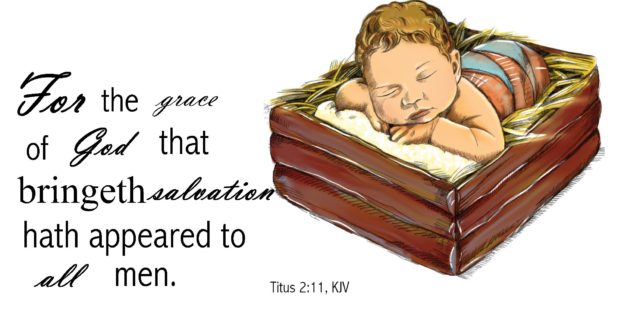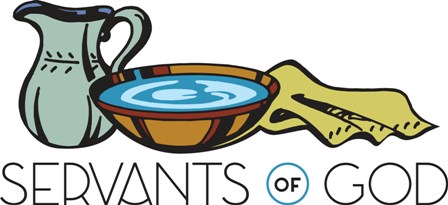In the Books of Mathew, Mark and Luke, we read of the account where the chief priests and scribes, Pharisees and Herodians – who were bent on getting Jesus out of their way [at any cost] – attempted to trick Jesus into stating that the Jews should not pay the poll tax [tribute money] to Caesar. [See Matthew 22:15-22; Mark 12:13-17; Luke 20:19-26]. (Note: The Jews hated being ruled by the Roman government and they clearly hated the burden of paying taxes to this ruling power.)
Matthew 22:15-22,
“Then went the Pharisees, and took counsel how they might entangle him in his talk. And they sent out unto him their disciples with the Herodians, saying, Master, we know that thou art true, and teachest the way of God in truth, neither carest thou for any man: for thou regardest not the person of men. Tell us therefore, What thinkest thou? Is it lawful to give tribute unto Caesar, or not? But Jesus perceived their wickedness, and said, Why tempt ye me, ye hypocrites? Shew me the tribute money. And they brought unto him a penny. And he saith unto them, Whose is this image and superscription? They say unto him, Caesar’s. Then saith he unto them, Render therefore unto Caesar the things which are Caesar’s; and unto God the things that are God’s. When they had heard these words, they marvelled, and left him, and went their way.”Mark 12:13-17,
“And they send unto him certain of the Pharisees and of the Herodians, to catch him in his words. And when they were come, they say unto him, Master, we know that thou art true, and carest for no man: for thou regardest not the person of men, but teachest the way of God in truth: Is it lawful to give tribute to Caesar, or not? Shall we give, or shall we not give? But he, knowing their hypocrisy, said unto them, Why tempt ye me? bring me a penny, that I may see it. And they brought it. And he saith unto them, Whose is this image and superscription? And they said unto him, Caesar’s. And Jesus answering said unto them, Render to Caesar the things that are Caesar’s, and to God the things that are God’s. And they marvelled at him.”Luke 20:19-26,
“And the chief priests and the scribes the same hour sought to lay hands on him; and they feared the people: for they perceived that he had spoken this parable against them. And they watched him, and sent forth spies, which should feign themselves just men, that they might take hold of his words, that so they might deliver him unto the power and authority of the governor. And they asked him, saying, Master, we know that thou sayest and teachest rightly, neither acceptest thou the person of any, but teachest the way of God truly: Is it lawful for us to give tribute unto Caesar, or no? But he perceived their craftiness, and said unto them, Why tempt ye me? Shew me a penny. Whose image and superscription hath it? They answered and said, Caesar’s. And he said unto them, Render therefore unto Caesar the things which be Caesar’s, and unto God the things which be God’s. 26 And they could not take hold of his words before the people: and they marvelled at his answer, and held their peace.”
It could be concluded that their ploy was designed to accuse Jesus of being an insurrectionist as were Theudas and Judas of Galilee (see Acts 5:36-37) – and that they sought to charge Jesus with the crime of dissuading the Jews from paying their taxes. If they could have succeeded with this accusation the Roman government would quickly have brought Jesus to trial [and probably have executed him]. Jesus, however, saw through their craftiness, their hypocrisy, and their temptation – for He knew their hearts.
Matthew 22:18-22 states,
“But Jesus perceived their wickedness, and said, Why tempt ye me, ye hypocrites? Shew me the tribute money. And they brought unto him a penny. And he saith unto them, Whose is this image and superscription? They say unto him, Caesar’s. Then saith he unto them, Render therefore unto Caesar the things which are Caesar’s; and unto God the things that are God’s. When they had heard these words, they marvelled, and left him, and went their way.”
Most often we read these passages and discuss them in light of whether or not we should pay our taxes unto the government. This can quickly be answered. God ordained government; pay your taxes, but only pay that which is legally required (and not a cent more) – for herein is a good steward of God’s money and a good citizen of this country.
But what is most often overlooked in this passage is Jesus’ final words unto these tempters. Jesus stated, “Render unto God the things that are God’s.” These men [due to the hardness of their hearts] refused to embrace Jesus as God’s only begotten Son. They refused to receive Him as the Christ, as the Messiah, as the King of kings and Lord of lords. They refused to give up their “pomp and glory” and bow down to worship the True King. They refused to become servants and disciples of Jesus Christ. Ironically, though, these Jewish leaders hated the Roman Empire – and yet, they were much aligned with it, because they cherished their roles and positions of leadership which the Romans allowed them to hold.
Let it be understood here that “to render unto God the things that are God’s” requires one to give their life unto the Lord’s service, to honor Him alone as God, to love your neighbor as yourself. For Jesus stated in Matthew 22:37-40,
“Thou shalt love the Lord thy God with all thy heart, and with all thy soul, and with all thy mind. This is the first and great commandment. And the second is like unto it, Thou shalt love thy neighbour as thyself. On these two commandments hang all the law and the prophets.”
Titus 2:11-14 states,
“For the grace of God that bringeth salvation hath appeared to all men, Teaching us that, denying ungodliness and worldly lusts, we should live soberly, righteously, and godly, in this present world; Looking for that blessed hope, and the glorious appearing of the great God and our Saviour Jesus Christ; Who gave himself for us, that he might redeem us from all iniquity, and purify unto himself a peculiar people, zealous of good works.”
1 Peter 2:24 states,
“Who his own self bare our sins in his own body on the tree, that we, being dead to sins, should live unto righteousness: by whose stripes ye were healed.”
As you can see from these versus, a child of God should willingly render their life unto God because of what God has already done for us – through sending His Son Jesus to die for our sins and to be our Savior. So, are you rendering unto God the things that are God’s – or are you living unto the things of this world?



